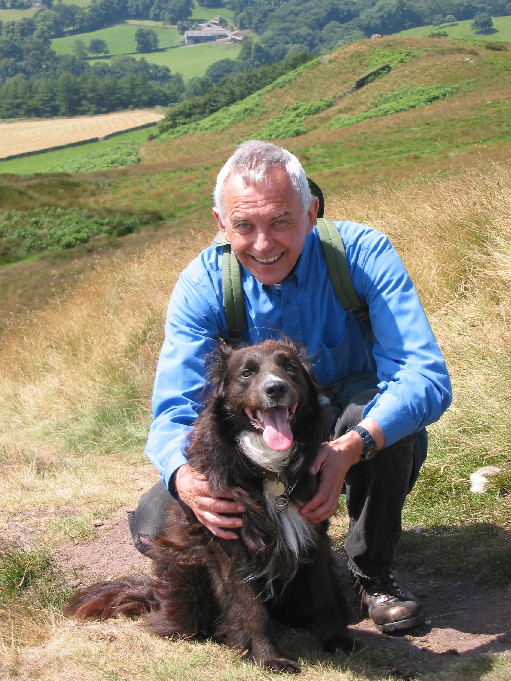Professor Richard Davis OBE
4th May 2016

Very sadly we must announce that Professor Richard Davis OBE passed away on Monday. Richard worked at Jodrell Bank for almost 45 years, contributing to many areas of research, teaching and technical development. He will be greatly missed by all here and his many friends and colleagues across the world.
Richard arrived at Jodrell Bank in 1971 when he joined the MSc course in radio astronomy. He proceeded to studying for a PhD first with Robin Conway as supervisor and then with Ralph Spencer when Robin was on sabbatical leave.
Working with Bob Warwick and Ralph Spencer, Richard designed and constructed electronic systems for the first phase stable interferometer at Jodrell using the Mk II and Mk III telescopes separated by 24 km. The system automatically compensated for the path length changes in the radio link between the telescopes. Richard independently worked out the necessary geometric corrections to the phase, which enabled positions of radio sources to be determined to better than 100 milliarcseconds. It also enabled integrations for hours, allowing for example the discovery of radio emission from the parent galaxy of the famous radio source Cygnus A.
Following the successful completion of his PhD thesis (mostly on the radio polarization properties of quasars), he then worked on MERLIN, where with Bryan Anderson and Mike Bentley, he produced the link path measuring system still used to this day.
During this time (the late 1970's), Richard and Ralph Spencer spent many happy hours working with Sir Bernard Lovell developing observing systems for the study of red dwarf flare stars. These used the Mk I (now Lovell) telescope and the 25-m telescope at Defford at a frequency of 408 MHz, and led to the first unambiguous detection of radio emission from YZ CMi using an interferometer.
With his student Steve Padin, Richard then went on to design the broad band interferometer using the Lovell and Mk II telescopes operating at 5 GHz. This instrument had one of the highest speed correlators in existence at the time and was sensitive enough to detect radio emission from novae and symbiotic stars leading to a new topic for research.
Richard later worked extensively on the study of the quasar 3C273, leading to a number of important papers in the 1980's and 90's. He was also project scientist for MERLIN, the 32-m Cambridge Telescope and the Lovell Telescope, taking responsibility for advising on upgrades which have kept it at the cutting edge of research.
Most recently his work focused on studies of the Cosmic Microwave Background with the Very Small Array in Tenerife and then the Planck spacecraft. He was the United Kingdom's Principal Investigator for the Low Frequency Instrument (LFI) on board Planck. He led the team at Jodrell Bank which designed and built the 30 and 44 GHz space-qualified cryogenic radio receivers, the most sensitive radio astronomy receivers to date in these bands. The spacecraft was launched in May 2009 and continued operations until the end of its scheduled mission in October 2013. Planck has provided the most accurate measurements of several key cosmological parameters.
Richard had a wide range of impressive skills in electronics and computing, developing instruments which have led to new areas of research - as he himself said, not bad for a theoretical physics graduate. Richard could and did apply his deep understanding of how radio astronomy really works to a wide variety of problems and projects. His natural insight into the basic physics of what was going on was tremendous, and he made it look easy, whether it be electronics, structural engineering, radio frequency design, astrophysics or cosmology. His wide-ranging work was recognised with the award in 2011 of an OBE for services to science.
Staff and students at Jodrell Bank remember Richard as a lovely man and a devoted father who was always fun to be around - there was a lot of laughter when working with him. His infectious enthusiasm, commitment to science and warmth were legendary: he brought humour, understanding and pin-sharp insight in equal measure to everything he did and our whole community will miss him greatly.
Contacts
Jodrell Bank Observatory, telephone 01477 571321.


